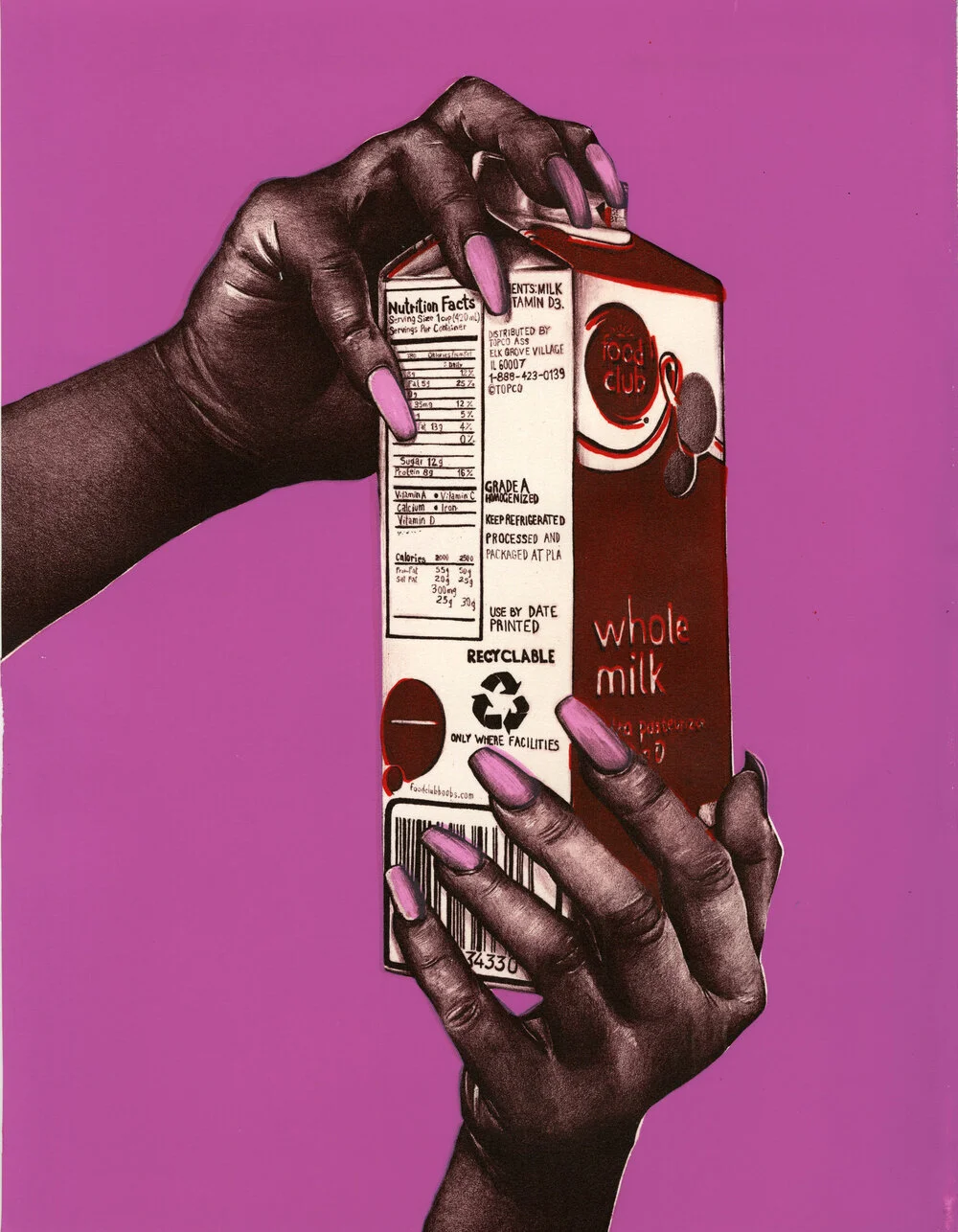
I'm Right Here
By Zoë Gioja
My husband vacuums; I wash the sheets. He sweeps the garage; I wash the towels and fold them up. He pays the bills; I say we should donate to some places. I do the dishes; he waters the plants.
My husband says he wishes I cared more about the plants. He is always pointing things out to me. Things that I somehow don’t notice. Look at the new leaves on the strawberries, he says. Do you remember how they were just leafless nubs two days ago? Look at the philodendron tree. It has two leaves now. Enjoy it, ’cause that’s all we’re going to get all summer.
One day, I change things up. I vacuum. I sweep the garage. I pay all the bills, every last one. There is nothing left in my account when I am finished. I feel powerful. Then I water the plants.
I’ve watched him; I know how much water each plant needs. I take my time. I get down on my haunches like he does and inspect each one. The strawberries, with big healthy leaves now. The dill, recovering indoors from the heat. The cat grass, gone ratty and brown. The lemon tree, which needs a bigger pot because it keeps getting knocked over when it’s windy.
Then there’s the hibiscus. Its blooms unfurl slowly in the morning. They open up completely in the afternoon, big and red and bold. The deck is hot on my feet. I spray the hose on the wood to give myself a cooler place to stand. I bend down and look at today’s bloom. Its leaves have flopped open and its pistil reaches for the sun, like a satellite sending and catching communications, messages between plants and humans.
My husband says they die at the end of each day. The flower opens, yellow at the fringe, pink in the middle, a red stain in the center. I take its petal between my fingers to feel the gloss of that color. Everything becomes that color. That red, that yellow. That pink gradient, with red veins shot through.
I have never felt more desirable. I am sun-yellow. I am violet-red. I am what’s in between. I am glossy. I am paper-thin. I am delicate. I am attractive to many things. Insects and humans and birds alike—who else can say that?
I hear my husband pad up the stairs. It’s a soft sense, a vibration of his bare foot on the wood of the porch. He calls my name. I answer, but he looks around, perplexed.
Then he sees me, bends down, and takes a long look.
Marjorie, he calls, have you seen the hibiscus yet today? It’s gorgeous.
Of course I have, I say; I’m right here. I am gorgeous. But he doesn’t seem to hear me.
As the day goes on, he becomes worried. He disappears into the house for a while, but then I see him pacing back and forth before me on the phone, calling people. Have you seen Marjorie? he asks whoever is on the other end of the line. Is she with you?
The worst part is when I start to curl up as it gets dark. I can see less and less. I shrink back to a bud, like I am going backwards. In the morning, he comes over and plucks me up in his fingers. I feel his skin against the petals, the leaves of me; we are wonderfully near. He holds me softly. Who knew he held every flower with such love? I am jealous of myself.
He pitches me over the edge of the deck. He can’t know it is me. Yet I am hurt at the parting, the peeling of his skin from mine. I fly into the woods.
I lie there. I have landed beneath a tree. Its branches shield me from the afternoon sun. At night, it starts to rain. An uncommon summer rain. I feel the water collecting beneath me. It builds; it lifts me up.
I am floating. I am free. I am plucked, no longer a part of the plant I came from.
The water moves, running in rivulets between the dirt and over the limestone. It carries me downhill towards the creek. I have started to forget about my husband, the house. The strawberries, the dill. The dishes, the laundry. That I have a husband, that I had one.
I am alone, running headlong, the way I did when I was little and had little-kid legs and nothing seemed decided. I am going to the creek, I shout; I am going on an adventure.
————————————————————————
Zoë Gioja’s writing has appeared or is forthcoming in Evening Street Review and borrowed solace. Zoë is a PhD student at Stanford University, where she studies transnational women’s and gender history. She was a Fulbright English Teaching Assistant in South Korea, and is the founder of Fulbridge.org, a website that connects Fulbright grantees worldwide. She enjoys hiking, cooking, and drawing. Zoë splits her time between the Bay Area and Austin, Texas, where she lives with her partner and two cats. You can find her online at zoegioja.com.
Art:
Zoe Brester-Pennings
Untitled
Lithograph and screenprint
Varied Edition
18”x24”
2020